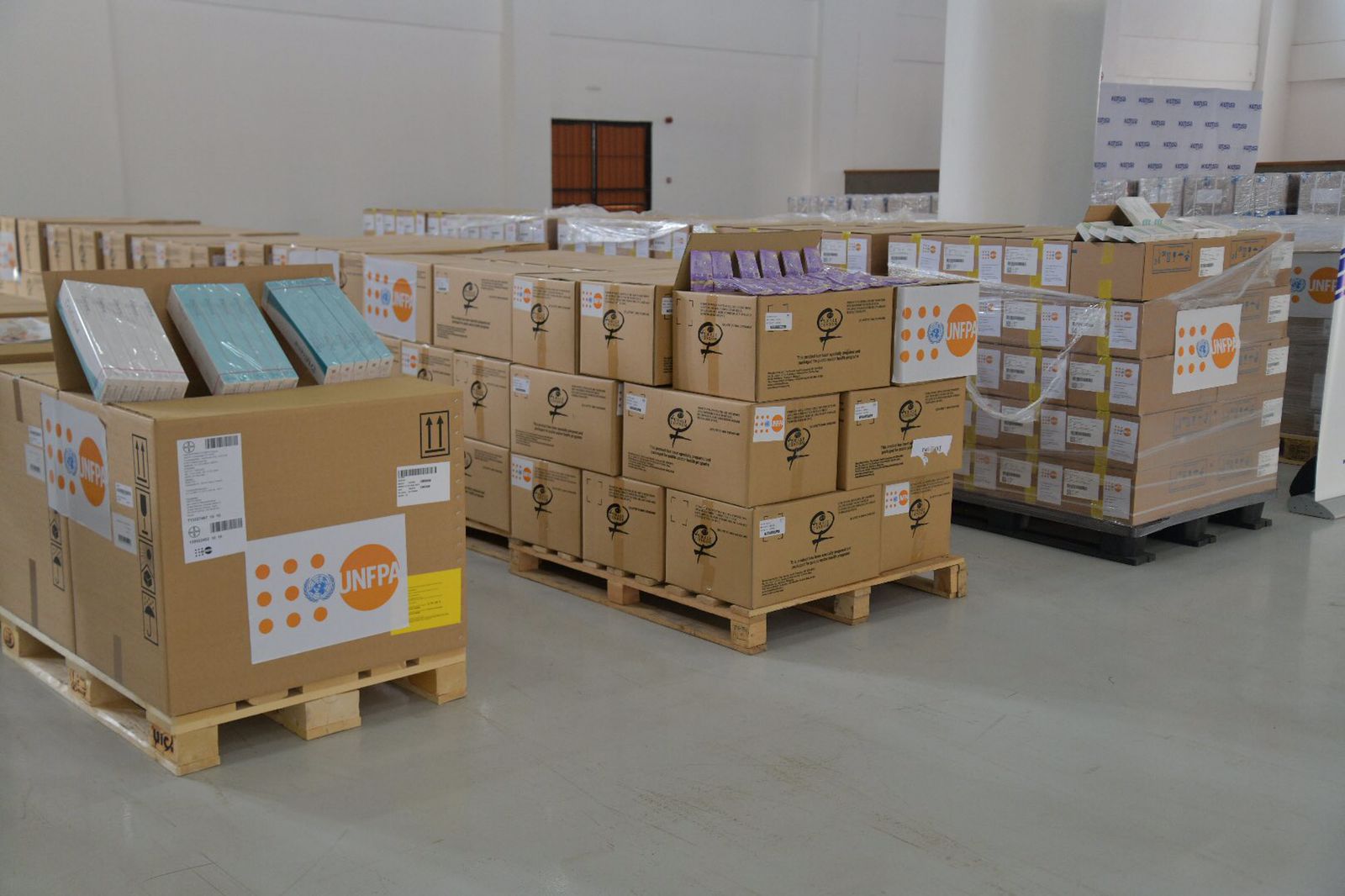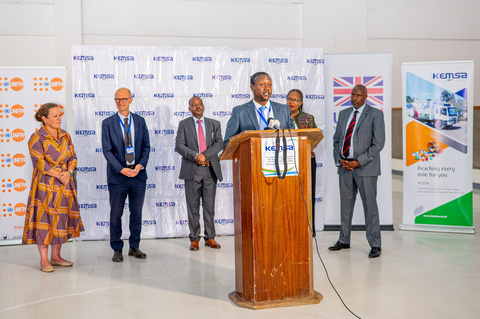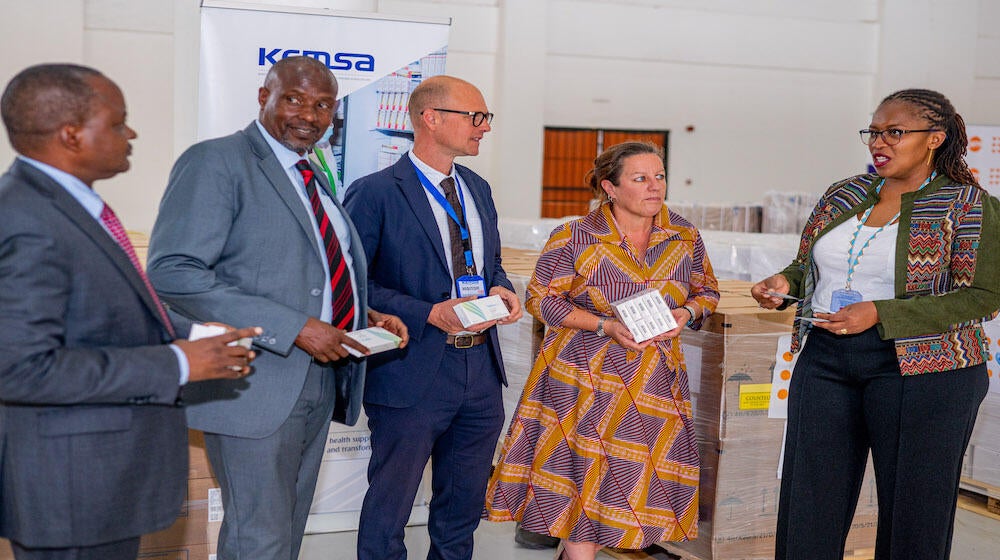Nairobi, 16th February 2023 - Contraceptives worth Kenya Shillings 500 Million were today handed over to the Kenya Medical Supplies Authority (KEMSA) for distribution to over 8,000 health facilities across the country. The supplies donated by the United Nations Population Fund, UNFPA, consist of injectable contraceptives, male and female condoms, hormonal IUDs, implants, and oral contraceptives.

Included in the donation were 60,000 sets of Levoplant contraceptive implants procured with financial support from UKAid, which will go towards addressing the gap in access to a variety of family planning methods for women living in rural and hard-to-reach areas. The family planning supplies were received by the Secretary-Administration, Mr. Moses Mbaruku, on behalf of the Principal Secretary, Ministry of Health. He was accompanied by the KEMSA Board Chair Mr. Daniel Rono, and CEO Miss Terry Kiunge Ramadhani.
‘For Kenya to move from the current modern contraceptive prevalence rate of 57% to the envisioned 64%, by 2030, we need to re-double our efforts and stay committed to the Family Planning commodity security,” said Mr. Mbaruku. The Secretary noted that the Government of Kenya has allocated KES 890 Million in the current financial year, which will go towards procurement, warehousing, and distribution of contraceptives. “It is therefore, heartwarming to be here to witness the commitment of UNFPA and the UK government as we aim at realizing a funding ratio of 1:1, and ultimately 100% domestic funding for family planning.”
Injectable contraceptives and implants are the most commonly used contraception methods among women of reproductive age in Kenya, as shown in recently released data from the 2022 Kenya Demographic and Health Survey key indicator report. Currently, 14% of married women in Kenya aged 15-49 have an unmet need for family planning, which limits their ability to prevent unintended pregnancies and plan their families.
Wide disparities, however, exist with counties such as Marsabit, Tana-River, and West Pokot recording a higher unmet need for family planning at 38%, 37% and 29% respectively. UNFPA, with support from donors including the UK government, is focused on addressing this inequity to ensure that marginalized regions have equal access to these life-saving reproductive health commodities.

addresses the press during the handover
of Kes 500 Million worth of Family Planning Supplies donated by UNFPA
Speaking during the handover, UK Deputy High Commissioner and Permanent Representative to the UN Environment Programme and UN-Habitat Ms. Josephine Gauld commended efforts by UNFPA and KEMSA in ensuring the delivery of life-saving supplies up to the last mile. “Family planning is an integral part of the provision of comprehensive sexual and reproductive health services, and is also central to women’s empowerment, reducing poverty, and achieving sustainable development,” said Ms. Gauld. “Our support here today is therefore well aligned with the UK’s priorities on promoting gender equality and advancing women and girls’ sexual and reproductive health and rights in Kenya and across the globe.”
UNFPA Country Representative Mr. Anders Thomsen commended the Government of Kenya and KEMSA on the ongoing reforms in ensuring effective service delivery and supply chain excellence. ‘UNFPA remains committed to supporting the Ministry of Health and KEMSA on the journey to strengthening the supply chain. We are currently supporting the roll-out of a commodity security alert system to proactively track monthly consumption data for reproductive health commodities with the goal of ensuring optimized stocks and minimizing stock-outs across the country,” said Mr. Thomsen.


